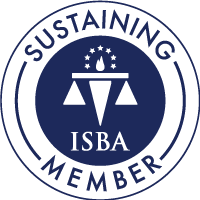Can the court include a non-disparagement clause in my divorce agreement?
It is not uncommon for a divorce to get contentious. Those going through a divorce that becomes a courtroom battle can find themselves dealing with all sorts of aftermath. Some they are prepared for, like the split of assets and time with children if present, others they may not have expected — like a court required non-disparagement clause.
What is a non-disparagement clause?
A non-disparagement clause is part of a legal contract that prohibits either party from making negative statements or remarks about the other party. Businesses often use these provisions within employment contracts to help better ensure former employees do not speak poorly about the business after their employment period ends.
Are these used in divorce settlement agreements?
There are situations when the court agrees to a non-disparagement clause as a part of a divorce settlement agreement. The parties generally use these types of clauses to reduce the risk of disparaging comments made to or in the presence of the divorcing couple’s children. The thought behind this is that it is in the best interest of the children to keep them out of arguments between their parents.
Are there limits?
The Court of Appeals of Indiana recently discussed the use of these agreements during a divorce in Israel v. Israel. In this case for the dissolution of marriage, the lower court included a non-disparagement clause that extended to comments made when they were around their “child, friends, family members, doctors, teachers, associated parties, co-workers, employers, the parenting coordinator, media, the press, or anyone.” It went on to state that disparaging comments included any negative statements, criticism, or defamatory comments.
The husband argued that this clause was a restriction of his freedom of speech. There are certain situations when the law allows for an exception to this freedom. The court generally allows censorship of expression when there is compelling government interest such as public safety. Falsely yelling “fire” in a crowded theater is a common example. As noted above, when it comes to family law matters, the government finds protecting children from disparagement between parents is a compelling interest.
But this case is different. The clause in this case extends far beyond any disparaging comments that are made in the child’s presence to include any comments made even when the child is not present. As such, the court finds that this portion of the clause violates the father’s first amendment right to free speech.
How does the court fix an issue like this?
If there is an issue with a portion of the divorce settlement agreement the court can generally fix that portion while leaving the rest intact. In this case, the Court of Appeals removed the portion of the provision that extended the non-disparagement agreement beyond the children. The rest of the agreement stands. This includes a more basic non-disparagement agreement that requires both parents refrain from speaking poorly of each other in front of their children.
What can we learn about drafting non-disparagement clauses from this case?
These are not boilerplate provisions. It is important to have a non-disparagement clause tailored to your specific situation to better ensure it withstands a challenge. The clause must generally balance the interests of the parties to avoid negative remarks with the individual’s right to freedom of speech.


